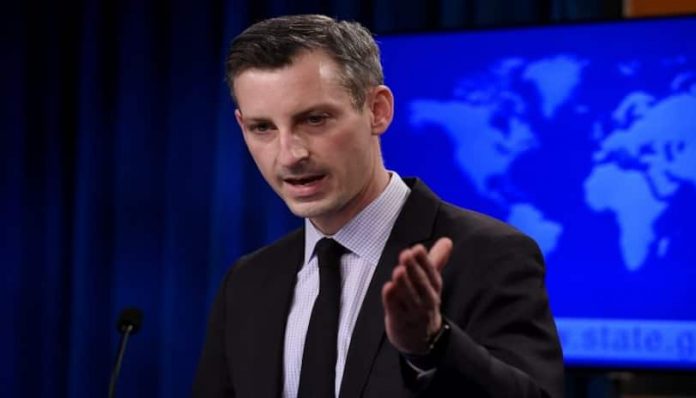The State Department on Friday said Washington has decided not to lift the pause in assistance to Ethiopia for most programs in the security sector, days after U.S. Secretary of State Antony Blinken described acts in Tigray as ethnic cleansing.
State Department spokesman Ned Price said on Friday that while the United States has decided to resume certain types of assistance, including that related to global health and food security, assistance for other programs and most programs in the security sector would remain paused.
“Given the current environment in Ethiopia, we have decided not to lift the assistance pause for other programs, including most programs in the security sector,” Price said at a news briefing.
Blinken has pressed Ethiopia to end hostilities in Tigray and on Wednesday, testifying before Congress, he said he wanted to see forces in Tigray from Eritrea and Amhara be replaced by security forces “that will not abuse the human rights of the people of Tigray or commit acts of ethnic cleansing, which we’ve seen in western Tigray.”
Thousands of people have died, hundreds of thousands have been forced from their homes, and there are shortages of food, water and medicine in the region of more than 5 million people.
The State Department last month said Washington will de-link its pause on some aid to Ethiopia from its policy on the giant Blue Nile hydropower dam that sparked a long-running dispute between Egypt, Ethiopia and Sudan.
But it cautioned that resumption of assistance would be assessed on a number of factors, including “whether each paused program remains appropriate and timely in light of developments in Ethiopia that occurred subsequent to the pause being put in place,” according to a State Department spokesperson.
Ethiopia’s military ousted the former local ruling party, the Tigray People’s Liberation Front (TPLF), from the regional capital Mekelle in November, after what it described as a surprise assault on its forces in Tigray.
The government has said that most fighting has stopped in Tigray but has acknowledged isolated incidents of shooting.
Both sides deny their forces have committed atrocities, and blame other forces for the killing of civilians.
By Daphne Psaledakis
Source: Reuters






























